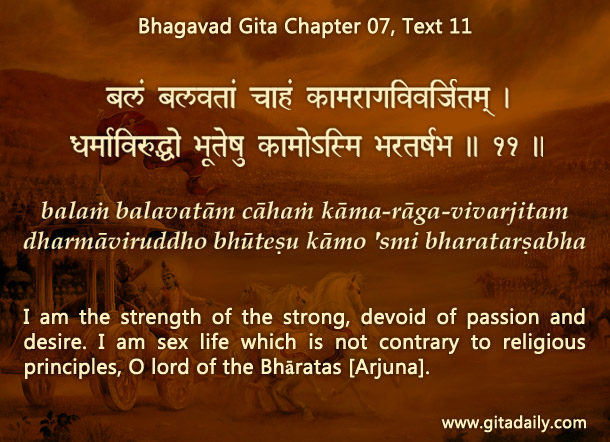Nowadays there’s an increasing tendency to divorce people’s personal life from their professional life. Heads of state may have scandalous affairs, but if they keep the economy growing, people consider their personal life irrelevant.
No doubt, all people including heads of state deserve some privacy for their personal life. But regard for privacy doesn’t imply disregard for morality. The values one exhibits in one’s personal life spill over, sooner or later, into one’s professional life too, because it is the same individual acting in both areas.
So if heads of state have affairs, then their promiscuousness indicates that excessive lust has polluted their mind. Lust is no servant of people that it can be conveniently switched off in professional life and switched on in personal life. Lust makes people its servant and drives them to immorality, stupidity and even perversity, with scant regard for personal-professional boundaries.
Of course, in their professional lives people may try more to conceal their lecherousness because their reputation, career and even livelihood may be at stake. But despite such efforts, the lust they entertain in their personal life can break down their façade and disrupt their professional life.
Therefore, to divorce the personal from the professional is to be blind to the essential driving force of a person – the core character, the level of consciousness, the framework of values. Pertinently, the Bhagavad-gita (07.11) declares that the divine is manifested in the strength of those strong people who are free from lust and attachment. Their superlative strength underscores their professional competence – leaders in the past usually led from the front on the battlefield. And their dispassion stresses their character, their moral incorruptibility.
Such an integrated model of leadership, indeed of the human person, is the foundation for all-round wellbeing, individual and social.

Explanation of article:
Podcast:

Leave A Comment